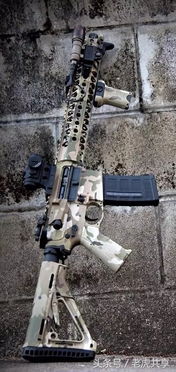AR-15 Armorer Training: A Comprehensive Guide for Aspiring Gunsmiths
Are you fascinated by the intricate workings of the AR-15 rifle? Do you aspire to become a skilled armorer and take your knowledge to the next level? If so, AR-15 armorer training is the perfect opportunity for you. This article will delve into the various aspects of AR-15 armorer training, providing you with a detailed and multi-dimensional introduction to this fascinating field.
Understanding the Basics of the AR-15

Before diving into the world of AR-15 armorer training, it’s essential to have a solid understanding of the basics. The AR-15 is a semi-automatic, gas-operated firearm that has gained immense popularity among shooters worldwide. Its modular design allows for easy customization and modification, making it a favorite among enthusiasts and professionals alike.
Here’s a brief overview of the key components of an AR-15 rifle:
| Component | Description |
|---|---|
| Receiver | The receiver is the central part of the rifle, housing the bolt carrier group and magazine. It comes in two types: the lower receiver (which holds the magazine) and the upper receiver (which houses the barrel and bolt carrier group). |
| Barrel | The barrel is the tube through which the bullet travels. It determines the rifle’s caliber and barrel length, which in turn affect its accuracy and rate of fire. |
| Bolt Carrier Group | The bolt carrier group is responsible for cycling the action of the rifle, including feeding the cartridge, extracting the spent casing, and chambering a new round. |
| Gas System | The gas system is responsible for controlling the amount of gas that is bled from the barrel to cycle the action. It consists of the gas key, gas block, and gas tube. |
| Handguard | The handguard is the tube that covers the barrel and provides a place for the shooter to grip the rifle. It can be customized with various accessories, such as Picatinny rails. |
| Stock | The stock is the part of the rifle that the shooter holds against their shoulder. It can be adjusted for length of pull and comb height to fit the shooter’s preferences. |
| Trigger Group | The trigger group includes the trigger, hammer, and sear. It is responsible for initiating the firing sequence when the trigger is pulled. |
What to Expect from AR-15 Armorer Training

AR-15 armorer training courses are designed to teach students the skills and knowledge necessary to disassemble, clean, inspect, and repair AR-15 rifles. These courses typically cover the following topics:
-
Safe handling and storage of firearms
-
Basic firearm mechanics and operation
-
Disassembly and reassembly of the AR-15 rifle
-
Cleaning and lubrication techniques
-
Inspection and troubleshooting common issues
-
Customization and modification options
During the training, students will learn how to safely handle and manipulate the various components of the AR-15 rifle. They will also gain hands-on experience in disassembling and reassembling the rifle, as well as performing routine maintenance tasks.
Choosing the Right Training Course

When selecting an AR-15 armorer training course, it’s important to consider several factors to ensure you receive the best possible education:
-
Reputation and experience of the instructor
-
Course content and structure
-
Duration and schedule
-
Cost and payment options
-
Accreditation and certification
Look for courses that are taught by experienced instructors with a strong background in firearms and armorer




